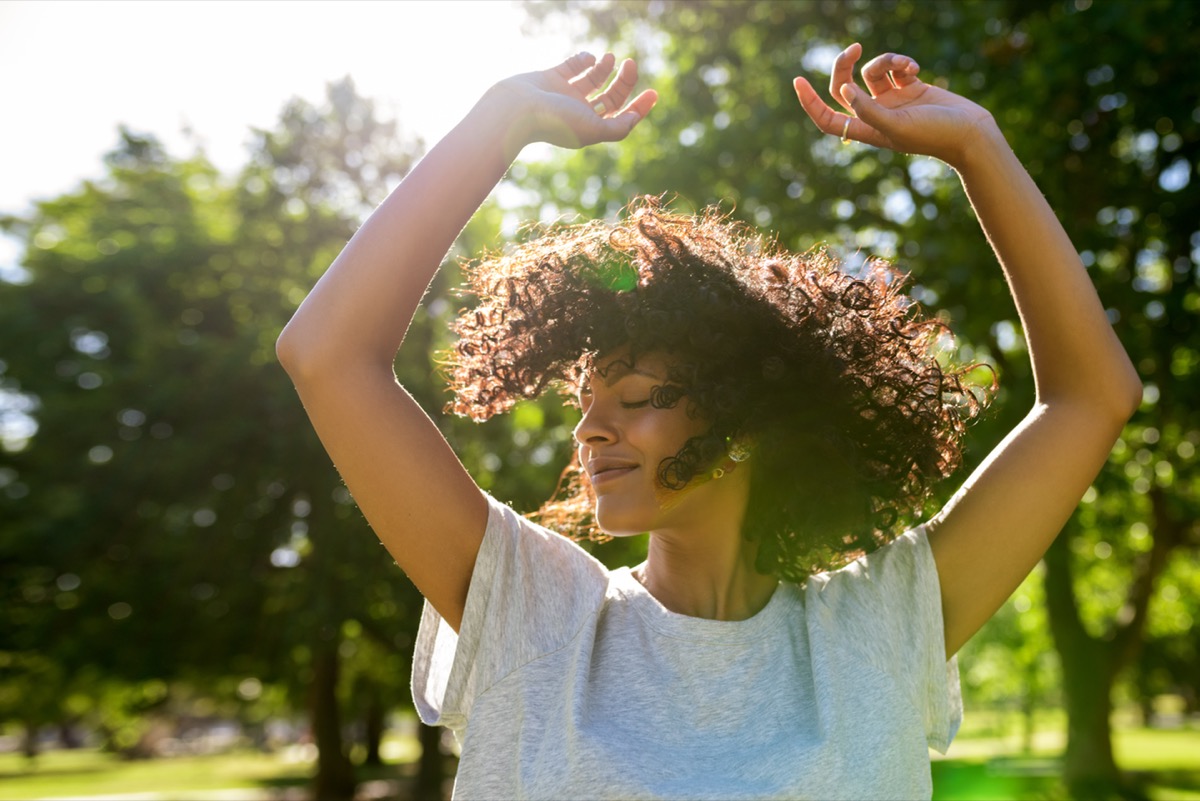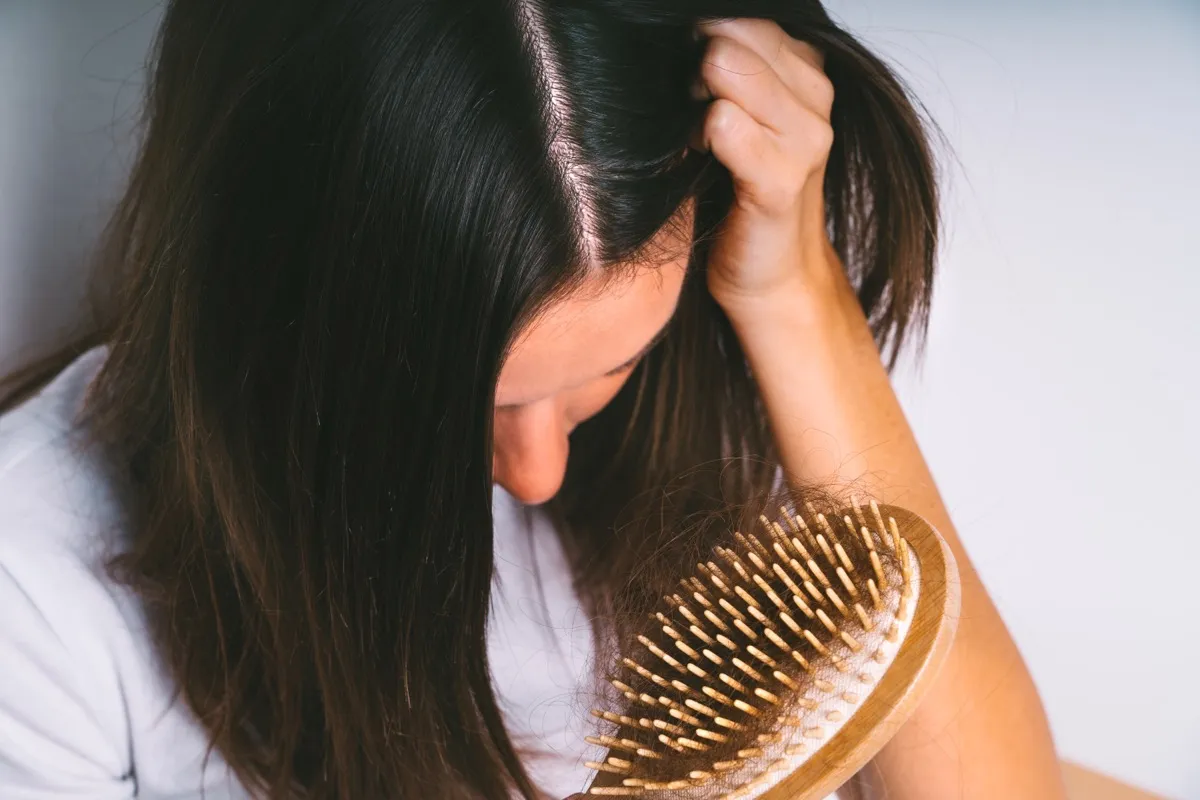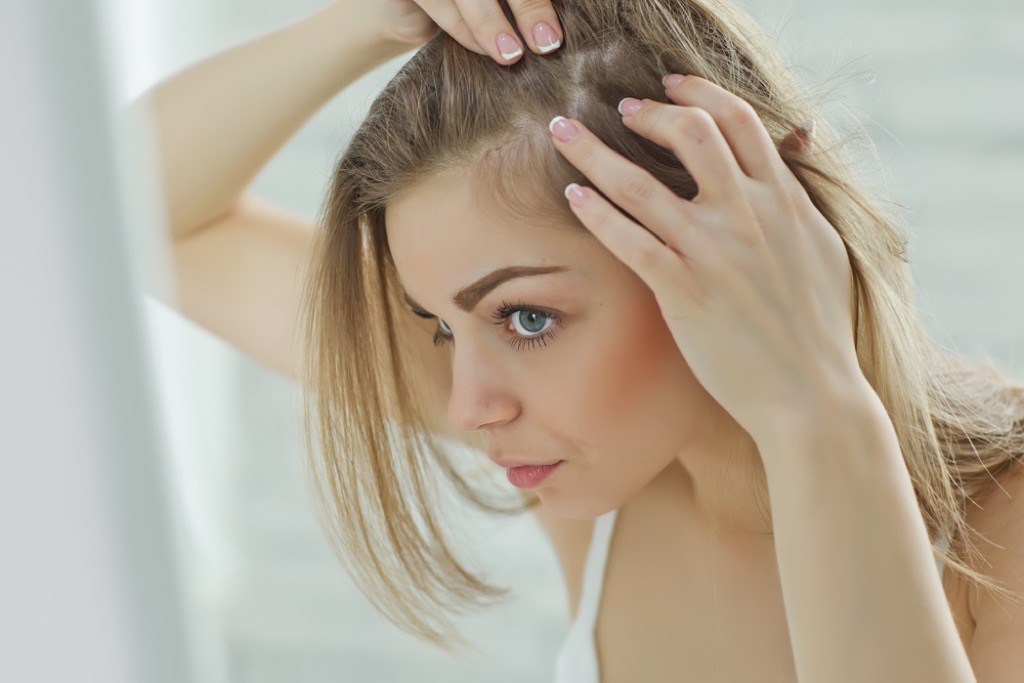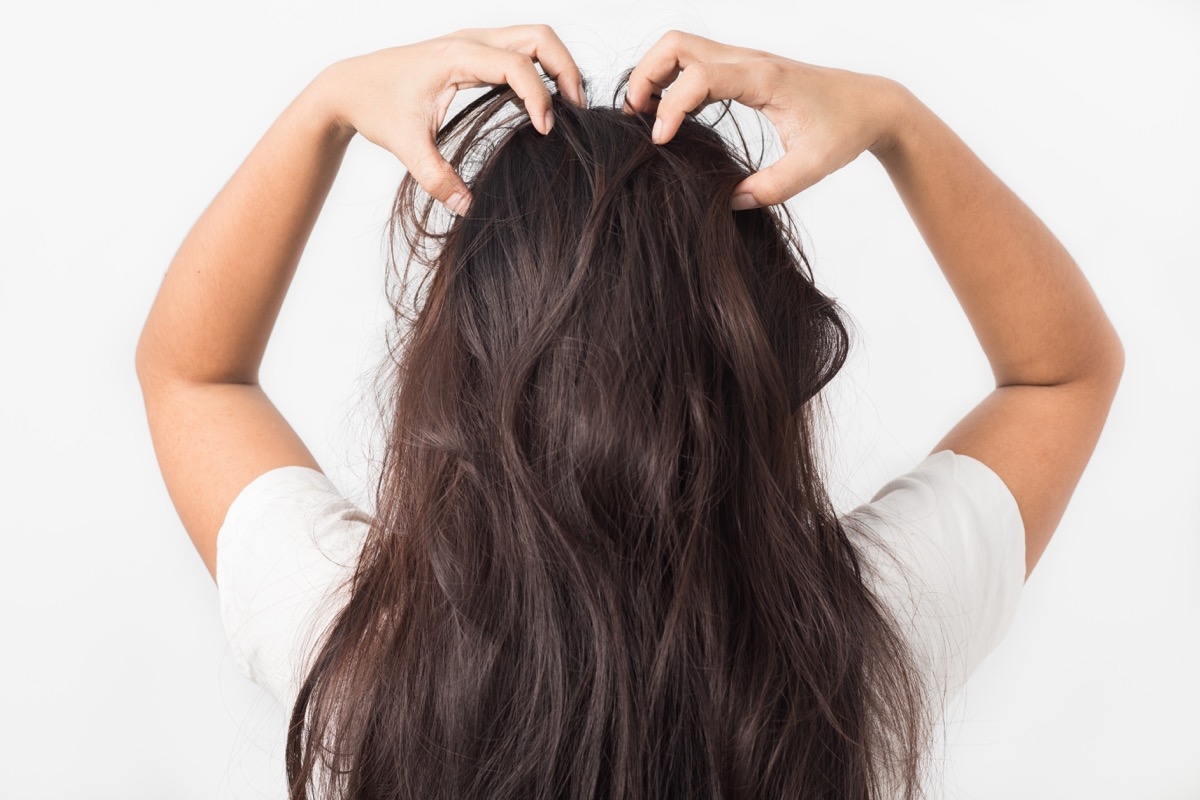What Happens If You Don't Wash Your Hair for a Week, According to Doctors
The key is to "listen to your hair and scalp," one expert advises.

When it comes to washing your hair, there are no hard and fast rules: it all comes down to what works for you. Most people report sudsing their strands every other day, though washing every two to three days can be perfectly adequate—and even beneficial—for certain hair types.
If you stick to this schedule of rather frequent washing, you may be wondering what happens when you go longer between shampoos. So were we! That's why we reached out to Steven Line, MD, a cosmetic medical physician and representative of American Cosmetic Association. He says there can be both benefits and consequences of foregoing a wash for a week, depending on your hair type and scalp condition.
"In general, it's best to listen to your hair and scalp and wash your hair as needed. For some people, that may be every day, and for others, it may be once a week," Line tells Best Life. Read on to learn what happens if you don't wash your hair for a week, and to decide whether it's worth a try.
READ THIS NEXT: Doing This in the Shower Is Making You Lose Your Hair, Experts Warn.
Your natural oils will nourish your hair.

According to Line, the first thing you're likely to notice if you don't wash your hair for a week is a stark increase in the amount of oils in your hair. "When you don't wash your hair every day, your scalp has a chance to produce its natural oils," he explains. "These oils, such as sebum, can hydrate and nourish your hair, making it appear healthier and shinier."
As a result, you'll probably notice some changes in your hair texture—which can be a blessing or a curse, depending on your beginning hair type. "For those with curly or wavy hair, not washing their hair as frequently can help enhance their natural texture. The natural oils can help define and tame frizz, leading to a more defined and bouncy look," says Line. However, he notes that if you have an oily scalp, not washing your hair can cause an accumulation of oils, which can make your hair appear greasy and unclean.
READ THIS NEXT: If Your Hair Is Thinning, This Food Could Be to Blame, Study Says.
Your strands may get stronger.

Your hair can break for any number of reasons: heat, styling, diet, stress, and underlying conditions, to name a few. Line says that frequent shampooing is another common culprit behind hair damage and breakage.
"Washing your hair too frequently can strip it of its natural oils, leaving it dry and prone to breakage," Line tells Best Life. "By washing your hair less frequently, you're allowing your hair to retain more of its natural oils, which can help reduce breakage."
You may see some product build-up.

Washing your hair less frequently may work in your favor if you don't typically use styling products. However, "if you use hair products like gel, mousse, or spray, not washing your hair for a week can lead to an accumulation of product on your scalp and hair," says Line. "This can weigh down your hair, making it appear dull and lifeless."
Of course, some hair products are specifically designed to be used between washes, including dry shampoos, refreshing sprays, and some texturizing products. When you do wash, you may benefit from using a clarifying shampoo, which can help remove excess product from your strands and scalp.
For more health news sent directly to your inbox, sign up for our daily newsletter.
Your scalp may become irritated.

For most people, going a week without shampoo will lead to at least some some unpleasant side effects. "Not washing your hair can cause an accumulation of oils, dirt, and dead skin cells on your scalp. This can lead to an itchy, flaky, and irritated scalp, which can be uncomfortable and unsightly," says Line.
He adds that many people experience an overgrowth of yeast and bacteria as dead skin cells trap moisture and warmth on the scalp. "This can result in scalp infections, bad odors, and even hair loss," he warns.





















